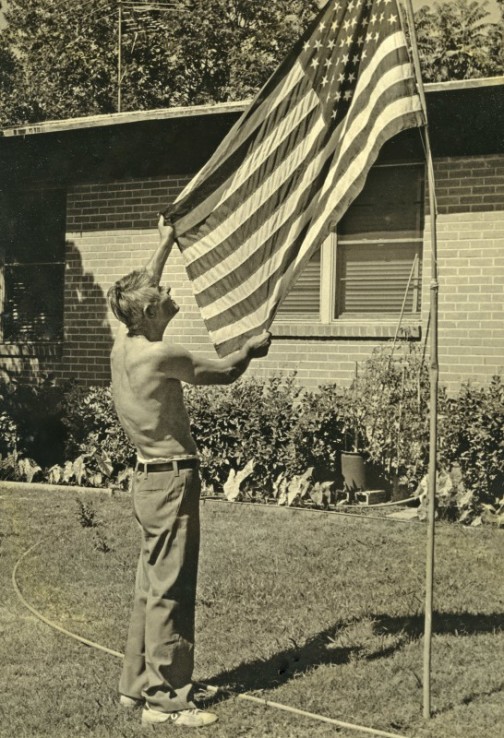One piece of furniture in our house that will never go away is a wicker basket in which my wife Anne and her baby brother Bobby arrived in America back in 1949. They and their parents were refugees, displaced persons who had miraculously survived Hitler’s plan to make Germany great again. They travelled first by ship to Boston, thence by rail to Dallas, where they resettled in a shabby apartment building in the wrong end of town. Helen immediately set about sprucing the place up—including the dingy hallway.
“Why are you scrubbing down the hallway,” asked one of the tenants.
“Because I LIVE here!” answered Helen.
While Helen minded the home front, Alex found work as a security guard at a metals yard. It was a far cry from the medical career he’d aspired to in Poland, nor for that matter had Helen aspired to be a janitor, but so what? At least they weren’t being shot at and bombed on a daily basis.
By and by they saved enough money to put a down payment on a “ranchette” in North Dallas, which at that time was the countryside. That’s where Anne and her brother came of age, in the sovereign state of Croydon Circle.
When I first met my father-in-law, I could barely understand a word he was saying. He struggled with English, as did Helen on occasion—often to humorous effect. I remember that she once expressed a concern that her flight might be “hitchhiked” by Arab terrorists. An image of a guy wearing a turban, standing beside the runway with his thumb out immediately sprang to mind.
Alex loved watching Westerns, but had trouble keeping the names straight. Thus Paladin became Polident (Have Gums Will Travel), and after Marshal Dillon’s lame deputy Chester was replaced by Festus, Alex always referred to the character as “Fester.”
As for broadcast news, Alex dismissed a lot of it as propaganda. Whenever a weather forecast turned out to be wrong, he’d accuse the weatherman of lying. I laughed then, but nowadays I’m not so sure. I know he was dead right when he insisted that you can’t trust the Russians, nor can you ever appease an aggressor.
My Polish in-laws were an odd couple in some ways. Alex was a rough edged farm boy; Helen an urban sophisticate. He was nominally Catholic; she was Jewish. The story goes that he had bribed a guard in order to free her from a Nazi concentration camp. For the remainder of the war she assumed a false identity—first name Sophia. Even in America, Alex habitually referred to her simply as “my wife.” Make that “my vife.” At his funeral, Rabbi Klein eulogized Alex as a righteous gentile, a man who had put his own life at risk in order to save the life of another.
Sadly, Alex didn’t live to see the birth of his three grandchildren, all of whom are currently working to make this country—and the world—a better place. At the moment, things don’t look so bright, but I like to think that in the long run they’ll succeed—same as Marshall Dillon and his humorous sidekick Fester always succeeded—in their determination to rid Dodge City of bad guys.
